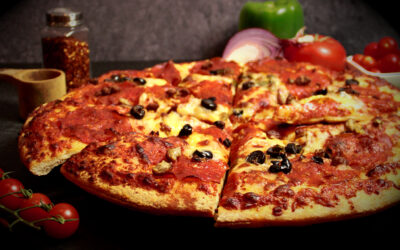Remember those days when store-bought baked goods meant Hostess Twinkies or Little Debbie Oatmeal Cream Pies? These treats were tasty and indulgent and probably filled with enough preservatives to survive a nuclear holocaust. Suffice it to say, the clear delineation between homemade fresh and pre-packaged store-bought was kind of like real fruit versus the plastic ones on the coffee table.
Although Hostess and Little Debbie have improved their ingredients somewhat, a completely different breed of baked goods have begun to take over store shelves – the ‘clean label’ kind. And even though that designation lacks a comprehensive definition in the food industry, most consumers view clean label products as those with only natural colors, flavors, and sweeteners.
A study conducted by the International Food Information Council in 2021 found that 64 percent of consumers try to select food with natural or clean ingredients. Nearly a quarter of those cited health benefits as the key reason for choosing clean label products.
In terms of baked goods, including cinnamon rolls, yeast breads, and heat and serve rolls, all it takes is one jaunt down the bakery aisle to see how popular intrinsically healthy ingredients have become. And the 2021 FONA International Trend Insight Report on sugar found that 51 percent of U.S. consumers cut back or eliminated traditional baked goods to limit sugar consumption. Given this information, is the clean label trend a death knell for those astonishingly sweet sticky buns or that scrumptious everything bagel?
Quite the contrary. As Millennials strive for increasingly healthier lifestyles and more sustainable food choices, bakers are rising to the challenge to create new and improved breads, doughs, and pastries filled with non-synthetic and minimally-processed ingredients.
What Does a Clean Label Look Like?
For starters, clean label products are just as much about what you put in as what you keep out. Once you remove all dyes, additives, processed sugars, and so on, you might wonder what’s left to make your product taste delicious, deliver on nutrition, and look great. The short answer – you have lots of options.
Instead of red, yellow, and green dyes, you can get those same rich colors from natural sources like beets, safflower, and chlorophyll. Swap out refined sugar with natural sweeteners such as honey, maple syrup, coconut sugar, and molasses. And to keep things fresh, cultured sugar, cultured wheat flour, or cultured wheat starch act as great natural mold inhibitors.
What’s Not in a Clean Label?
Chances are, if you can’t pronounce it, it’s not considered ‘clean.’ The additives we’re talking about include mold inhibitors and preservatives like butylated hydroxyanisole (BHA), butylated hydroxytoluene (BHT), potassium sorbate, sodium benzoate, and calcium propionate.
Equally offensive to clean label connoisseurs are refined sugars, artificial colors and flavorings, high levels of sodium, highly-processed whole foods, and partially hydrogenated oils (which, incidentally, were banned by the Federal Drug Administration in 2018).
Sustainability also represents an essential aspect of a clean label product. Conscious consumers want to avoid ingredients that are genetically modified, non-organic, or harvested using unethical or inhumane business practices.
A Word or Two About Local Sourcing
Have you ever baked bread with wheat kernels you ground yourself? Or made applesauce with fresh apples you just picked off the tree and then used to sweeten your favorite homemade cake? There’s something truly delicious about creating fresh and nutrient-rich baked goods in your home with farm-to-table ingredients.
The same principle applies to the large, artisanal bakeries that supply fresh or frozen bread to your local foodservice outlets. One of the highlights of clean label products is that most, if not all, of their ingredients are organic. And nothing says organic better than locally sourced.
Big agriculture operations typically pick fruits and vegetables before they ripen, which strips away many of their essential nutrients. They also often use pesticides and other harmful chemicals and feed their animals products with added hormones to satisfy mass production needs. As a result, the consumer ends up with a lower nutritional value in their ingredients, and the environment suffers soil degradation and waterway pollution.
However, using farm-to-table ingredients yields tremendous benefits for the environment, the consumer, and the community. Consumers get products made with nutrient-rich whole food ingredients while at the same time supporting local farmers. Small farming operations, in turn, help the community by providing jobs, natural ingredients, and environmentally-friendly land-use practices.
Public Health Concerns
Our nation’s obesity crisis and the Covid-19 pandemic spurred growth in consumer demand for clean label ingredients as never before. Doctors have told us for years that the best way to protect our bodies from illness and disease is to maintain a healthy diet and limit our intake of processed foods as much as possible. Unfortunately, it took seeing the results of poor eating habits and increased vulnerability to disease to drive that point home.
At some point, the Federal Drug Administration probably will define ‘clean label’ and create specific guidelines as to what exactly that means in terms of food quality standards. Until then, intelligent manufacturers will listen to their consumers and continue to innovate with healthier, more sustainable ingredients.



